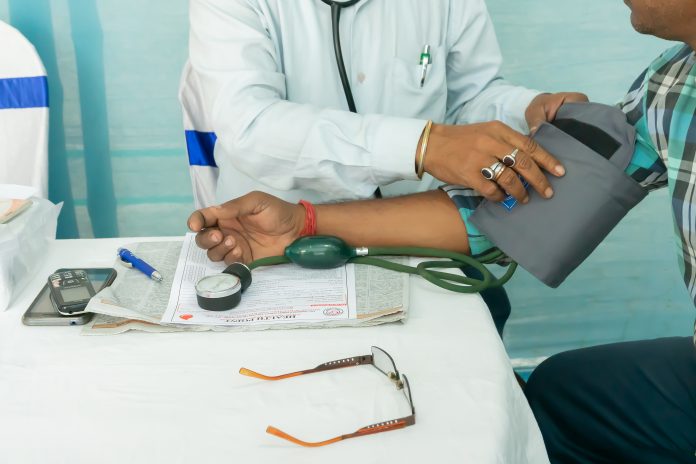Though heart damage plays a role in how someone deals with COVID-19, researchers at the American Heart Association found that blood pressure medicines don’t impact your chances
COVID-19 remains a key concern for all healthcare professionals and communities globally – especially those who are considered to be highly vulnerable to dying from the virus. Scientifically proven vulnerabilities include diabetes, heart diseases and lung diseases. However, myths commonly arise about other conditions and circumstances that may increase chance of death for patients.
Scientists are consistently battling fake miracle vaccines (remember hydroxychloroquine?) and staying up-to-date with the truth of COVID-19 mutations to establish a cohesive, reliable strategy for healthcare professionals to follow.
Firstly, heart damage does increase death rates
Previous studies have shown higher death rates in COVID-19 patients with evidence of heart damage. Heart damage can manifest as abnormal heart rhythms such as atrial fibrillation and atrial flutter. Atrial fibrillation is the most common form of heart arrhythmias and is an independent risk factor for death, especially in critically ill patients.
This study reviewed the prevalence and outcomes of hospitalised COVID-19 patients with atrial fibrillation and atrial flutter. Researchers reviewed medical records of 435 patients in the Yale Cardiovascular COVID Registry, who were adults, ages 18 and older who were hospitalised between March and June 2020.
“Our study suggests that the combination of COVID-19 and atrial arrhythmias may create a pathologic synergy that markedly increases the risk for major adverse cardiac events and death,” said Zaniar Ghazizadeh, M.D., a lead author of the study, an internal medicine resident at Yale New Haven Hospital and Yale School of Medicine in New Haven, Connecticut.
“COVID-19 places patients at a high risk for abnormal heart rhythms that are, in turn, associated with markedly worse outcomes including death and multi-organ failure. Patients and physicians need to monitor for these arrhythmias closely and treatments needs to be timely.”
“COVID-19 places patients at a high risk […] with markedly worse outcomes including death and multi-organ failure.
Secondly, blood pressure medications are not harmful
Early in the COVID-19 pandemic, the American Heart Association issued a joint statement with the Heart Failure Society of America and the American College of Cardiology to address the use of ACE inhibitors and ARB medications among patients at risk for developing COVID-19. They basically said that all patients taking these medicines for heart failure, hypertension or ischemic heart disease should continue using them.
Cardiovascular disease patients diagnosed with COVID-19 need to be properly assessed before healthcare professionals think about changing their treatments. In a separate study, the American Heart Association further found that blood pressure medicines are not causing fatality in COVID-19 patients. They conducted two meta-analyses to evaluate the results of 17 trials.
They found that patients taking ACE inhibitors or ARBs did not have an increased rate of COVID-19 infection, and hospitalised COVID-19 patients taking ACE inhibitors or ARBs did not have an increased rate of death.
“Our study results confirm that patients already taking ACE inhibitors and ARBs should not discontinue taking them due to COVID-19 infection,” said lead study author Yujiro Yokoyama, MD, surgeon at St. Luke’s University Health Network’s Easton Hospital in Pennsylvania.
“Both medications have proven benefits for heart and kidney disease, and this further confirms previous findings that ACE inhibitors do not pose additional risk with COVID-19.”











